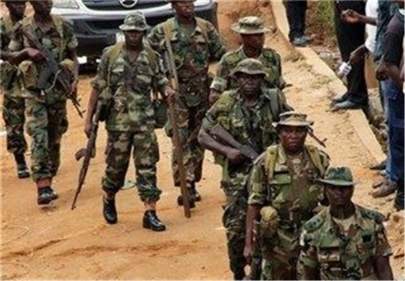Why Niger's Coup Matters to the U.S.

This week's coup in Niger has set off frantic diplomacy, with Secretary of State Antony Blinken warning that the U.S. partnership with the country depends on "democratic governance and respect for the rule of law."
Niger is vital to U.S. counterterrorism efforts in Africa. It's one of the few countries in the region that has agreed to house U.S. drone bases and hundreds of American Special Forces and logistics experts, who are involved in counterterrorism operations against Boko Haram and ISIS affiliates.
Niger's presidential guard has detained President Bazoum, raising fears of a coup.
In 2017, four U.S. Army special operations soldiers were killed in an ISIS ambush. France also maintains a large military presence in Niger.
United Nations Secretary-General António Guterres warns that there has been a dramatic increase in terrorist activity in Mali, Burkina Faso, and Niger — and notes that now there have been military coups in all three.
"The whole belt south of the Sahara is becoming an extremely problematic area," Guterres said Thursday, urging coup leaders to immediately release Niger's President Mohamed Bazoum, who is effectively being held hostage by members of the presidential guard.
The U.S. is also backing Bazoum and calling for his release, though Blinken has stopped short of formally calling this week's military takeover a coup. Doing so would require the U.S. to cut aid. Instead, Blinken is calling it "an effort to seize power by force and to disrupt the constitution."
When Blinken visited Niger in March, becoming the first secretary of state to do so, he announced $150 million in new economic aid and praised Bazoum's government for countering violent extremism with demobilization, disarmament, and reintegration programs.
Blinken told AFP that this was a partnership "we deeply value and deeply appreciate," one that also benefits Niger. "The work that we can do to combat terrorist groups — extremist groups — ultimately will be to the benefit of others."
The challenge now for the U.S. is to ensure that Niger continues to be a partner in counterterrorism efforts and does not turn to the Russian mercenary group, Wagner, for security assistance, as others in the region have.
"Everywhere Wagner goes," Blinken said in March, "bad things tend to follow."
Read the original article here:











